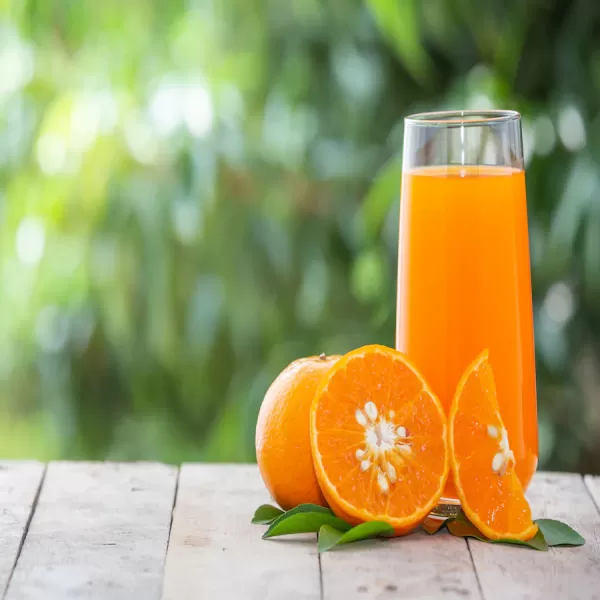VitaminC & its role in your health
Vitamin C is very much essential for the structural and functional well-being of our body. It plays a pivotal role in our immunity & wound healing.
updated on:2023-06-01 10:18:11
Compiled&reviewed by
Dr.Sanjana.V.B .Bhms,Dbrm,Cdn
VITAMIN C
Vitamin C, or ascorbic acid,
is a water-soluble vitamin and it is delivered to the tissues and cells in the
dissolved form .This vitamin is not well stored by the body, and hence it must
be taken daily through foods or supplements.
Vitamin C is very much essential for the structural and functional well-being of our body.
This micronutrient is very vital for developing immunity & healing of wounds.
It also plays a significant role in controlling infections .Your
vitamin C level determines the severity of infections and speed of recovery
from them.
It is a powerful antioxidant that can neutralize the effects of free radical and protect the body.Vitamin C helps the body to repair the damage caused by oxidative stress from reactive oxygen species free radicals.
The free radical mediated injury or damage is the ground for many chronic
diseases of our organ systems. Vitamin C protects our body not only from acute
infections by boosting immunity, but also from chronic diseases, fighting
against free radicals.
Vitamin C is very important for your skin and hair.
It is essential for the formation of collagen, a fibrous protein in connective tissue that is weaved throughout various systems in the body; Collagen fibres form extensive and robust networks providing the dermis of your skin with strength, firmness and elasticity.
Collagen is an essential component of nervous system, immune system, bones, cartilages, blood etc.
The vitamin also helps in the formation of several hormones and chemical messengers used by the brain and nervous system.
Free radicals can cause changes in cells and DNA that can lead to illnesses, including cancer. Vitamin C is an antioxidant which protects against cancers.
Vitamin C is heat sensitive .Cooking may reduce the amount of vitamin C in fruits and vegetables. However, steaming or microwaving these foods may retain most of the vitamin.
RDA: The Recommended Dietary Allowance
For adults 19 years and older RDA is 90 mg
daily for men and 75 mg for women.
For pregnancy and lactation, it is 85 mg and 120 mg daily, respectively.
Smoking can deplete vitamin C
levels in the body, so an additional 35 mg beyond the RDA is recommended for
smokers.
Vitamin C overdosing and adverse effects
The intestines have a limited ability to absorb vitamin C. In healthy adults, slightly excessive doses of vitamin C are not toxic ,as vitamin C, absorption decreases if tissues are oversaturated and any excess amount will be excreted in urine.
However, adverse effects can happen with intakes greater than 3000 mg daily, with diarrhea, increased formation of kidney stones etc. especially in people with existing kidney disease or history of stones.
Vitamin C deficiency
Vitamin C deficiency is rare
in developed countries but may occur with a limited diet that provides less
than 10 mg daily for one month or longer. However, eating a diet lacking fruits and vegetables can make one predisposed to Vitamin C deficiency soon.
Smoking or long-term exposure
to passive smoking, and drug and alcohol abuse can deplete your vitamin C
stores making you vulnerable to a large number of infections and other systemic
diseases.
Scurvy is the result of severe vitamin C deficiency. Symptoms are resulting from loss of collagen, that weakens connective tissues.
The signs and symptoms of scurvy include :
· Skin spots caused by bleeding and bruising from broken
blood vessels
· Swelling or bleeding of gums, and eventual loss of
teeth
· Hair loss
· Delayed wound healing
· Fatigue, malaise
· Iron-deficiency anemia due to decreased absorption of non-heme iron.
Vitamin C and iron [Fe]
The mineral Iron is absorbed by the intestinal mucosa from two separate heme and nonheme iron pools. Heme iron, derived from hemoglobin[blood] and myoglobin[muscle], is well absorbed by the intestines and not affected by other food components eaten in the same meal.
But, the absorption of non heme iron,[of the major dietary pool] is greatly influenced by meal composition. Ascorbic acid or Vitamin C helps very much in nonheme iron absorption and can reverse the inhibiting effect of substances like tea and calcium/phosphate.
So vitamin C is very important for proper absorption of iron that we get from food.
Sources of vitamin C
Guava
Bell pepper
Tomatoes
Oranges
Strawberries
Papaya
Potato
Broccoli
Kiwi fruit
Mango
Lemon
Cantaloupe
A balanced diet rich in fruits and vegetables will help you get adequate amount of vitamin C and keep yourself healthy and fit.
References
1.
https://www.ncbi.nlm.nih.gov/pmc/articles/PMC3783921/
2.
https://pubmed.ncbi.nlm.nih.gov/6940487/
3.
https://www.hsph.harvard.edu/nutritionsource/vitamin-c/
4.
https://parjournal.net/article/view/3863


Recommended For You
VitaminC & its role in your health
Vitamin C is very much essential for the structural and functional well-being of our body. It plays a pivotal role in our immunity & wound healing.
Related Links

sdfgh
